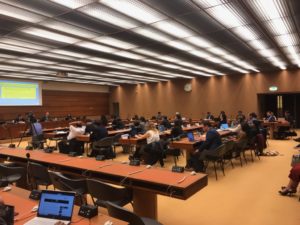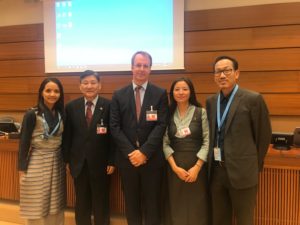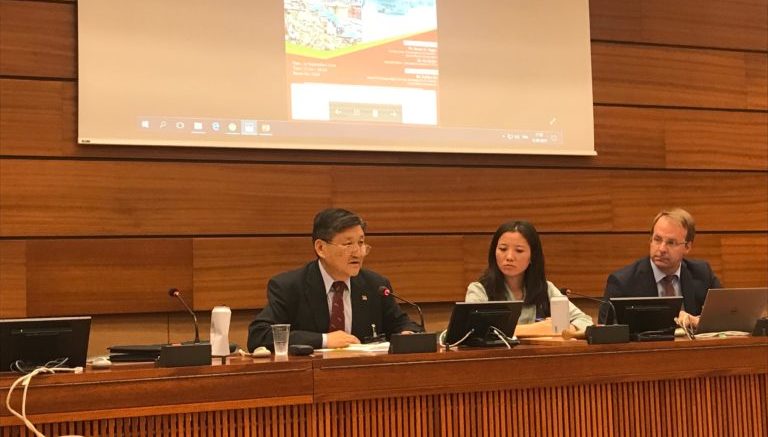Geneva: Amidst China’s push for “development” with Chinese characteristic at the UN radar and presentation of UN Special Rapporteur on Right to Development at the ongoing 42nd regular session of the UN Human Rights Council session, Society for Threatened Peoples, an International Human Rights NGO, organised a side event titled “Development or Destruction? The State of Socio-economic and Cultural Rights of Tibetans” on 12 September.
The hour-long event featured Sonam Norbu Dagpo, Secretary, Department of Information and International Relations, Central Tibetan Administration, and Kai Muller, Executive Director, International Campaign for Tibet, Germany. While Dukthen Kyi, head of UN & Human Rights Desk, moderated the event.
Underscoring concerns over unabated violations of Tibetans rights, including the forced removal of Tibetans from nomadic lands, unregulated mining and damming projects resulted to irrecoverable disruption of Tibet’s ecological health, Secretary Dagpo said, “Development projects in Tibet are not benefitting Tibetans. The Chinese official discourse of development in Tibet portrays a rosy picture”.
He further added that development should not only take into account quantitative results but also consider qualitative impacts on the recipients of the development projects. Tibetans are not against development in Tibet but “these projects should benefit the local Tibetan people”. Development projects should be culturally acceptable, environmentally sustainable, economically beneficial, and socially inclusive of the local Tibetans”, added Secretary Dagpo.

Society for Threatened Peoples, an International Human Rights NGO, organised a side event titled “Development or Destruction? The State of Socio-economic and Cultural Rights of Tibetans.
Echoing China’s forced removal of Tibetan nomads and robust economic development policies, including construction of road and railway infrastructure, mining in sacred sites and grasslands, Kai Muller, outlined the cases of how China’s top-down development policy in Tibet, in contrast to right-based approach, undermines Tibetan knowledge, practices, and traditional beliefs that in fact are sustainable and “ecological conservative initiatives”. Kai also presented what would inclusive and rights-based development approach would look like in ensuring relocated Tibetan nomads to carry a decent self-determined life.
Representatives from various missions, human rights organizations and Chinese representatives well attended the event.
-Filed by Tibet Bureau, Geneva

CTA delegation including DIIR Secretary Sonam N Dagpo, Head of UN, EU & Human Rights Desk Dukthen Kyi and UN Advocacy Officer Kalden Tsomo with Representative Chhimey Rigzin and Kai Muller, Executive Director, International Campaign for Tibet.

